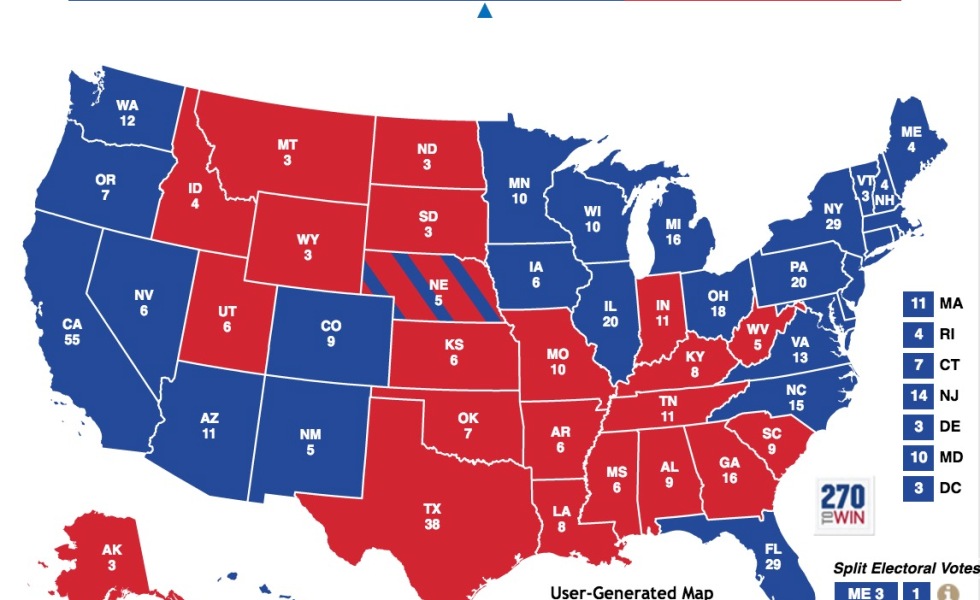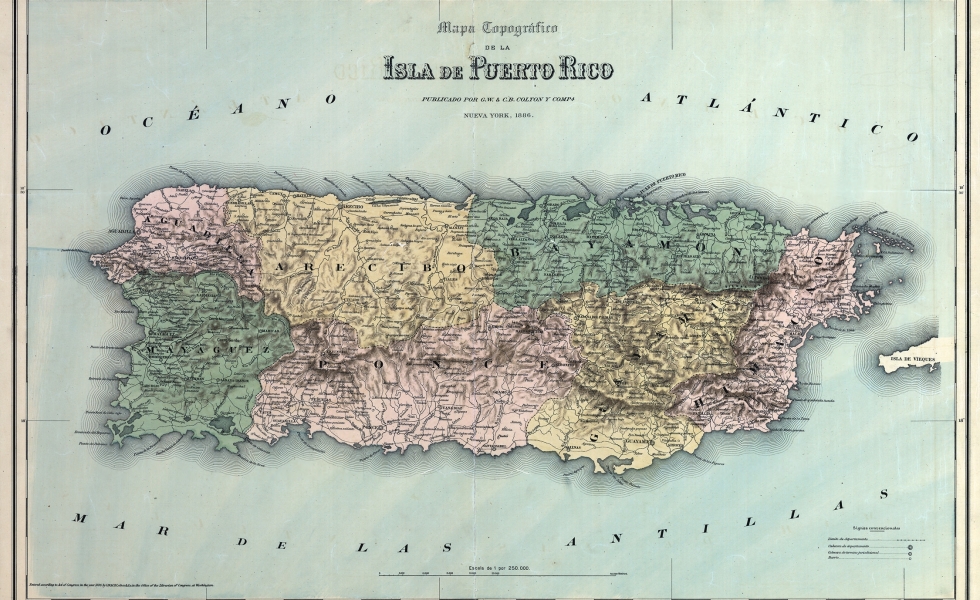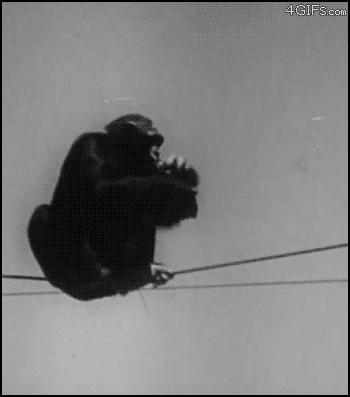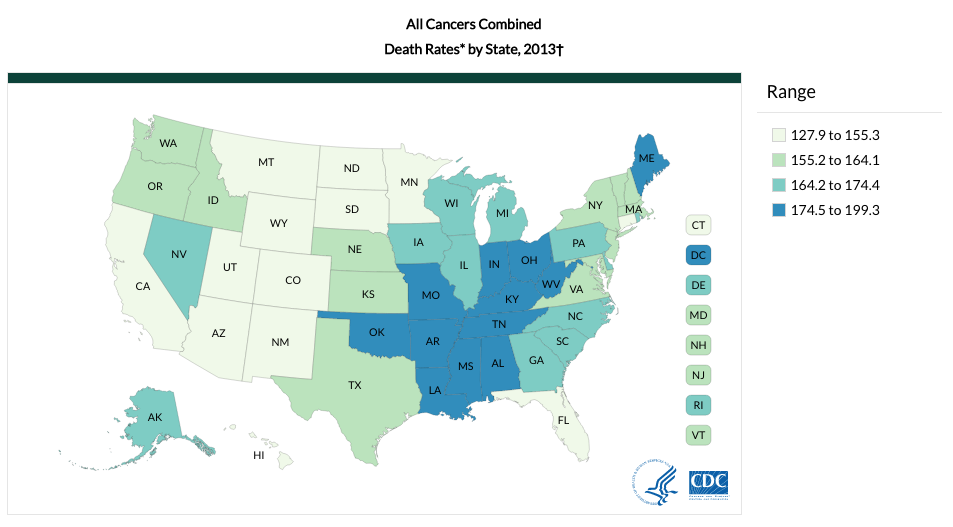One Thing I Promise You: Work
Posted on November 7, 2016 3 Comments
I’m in Atlanta for some training before heading out to Puerto Rico to chase me some Zika Virus. As an Uber driver took me to CDC this morning, we started talking about his life story. Mr. Mohammed arrived in the United States in 2000, escaping war in Sudan as a refugee. He told me that his oldest son came with him, and that son is now studying at a university. He also told me that his two younger daughters are in high school, so Mr. Mohammed is working hard to get them through school and on their way.
As we arrived at CDC, I told Mr. Mohammed about how I always wanted to work at CDC ever since I knew of it as a teenager in high school. “Is this your dream come true?” he asked. I thought about it for a while. He had just told me about how his dream was that his children got through college, and how scared he was of a Trump Administration. (This is one day before the election.) I quickly told him about how I come to the United States when I was ten years old. However, I wasn’t escaping war. Rather, my parents wanted me to have better opportunities, so they brought me here. “Don’t worry too much,” I told him. “One way or another, we’ll have a lot of work to do.” In response to his question of this being my dream come true, I told him that we were the dream come true: The American Dream.
Mr. Trump will tell you that Mr. Mohammed and I in that car were the biggest threat to America ever. Mr. Mohammed, a Muslim immigrant from a war-torn nation. Me, a Mexican immigrant looking for a good job. Mr. Trump gives us a bleak picture of where America is today, and he blames a lot of it on people like Mr. Mohammed and I. That alone would be one good reason for me not to vote for Trump.
Yeah, Hillary Clinton is a deeply flawed candidate. The Democratic Party could have come up with a much better candidate, one without so much political baggage, conflicts of interest, and favors owed to God-knows-who. She could have done a better job as Secretary of State in standing up to puppet master Vladimir Putin.
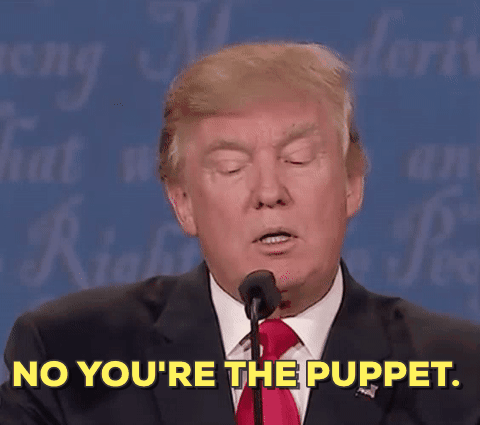
Oh. Okay.
Hillary could have negotiated a better deal with Iran regarding that nation’s nuclear ambitions, but she wasn’t negotiating it alone. European nations within the range of an Iranian missile were at the table as well. And Hillary could have distanced herself from Huma Abedin and Anthony Weiner (among others) early in the election. But politics is all about favors owed, right?
And the goddamned emails, of course.
Regardless of who wins tomorrow, there is going to be a lot of work to be done. Violence is on the rise in places like Baltimore. So we will have to work to give jobs and educational opportunities to those who are lured to a life of crime when a paycheck for honest work is nowhere to be found. There is an opiate epidemic ravaging families all over the country, so we’ll need to work on ending the “war on drugs” and getting on with decriminalization, treatment and rehabilitation. The Affordable Care Act has brought millions affordable healthcare, but it needs tweaking so that others don’t have to carry a heavy burden of high premiums and tax penalties. Zika will continue its march into the Gulf Coast as temperatures get warmer next spring, but it will continue to cause disease and death in the Caribbean while it does so.
In short, there is a lot to be done. And it will not matter much who becomes President next January because the Executive can only do so much about these problems. A lot of them require work at the local level, with maybe only funding from the federal government, funding that comes from action in Congress. Then again, it will matter because the President can do some big things that affect us all the way at the local level, like send us into war, affect trade (which affects some jobs), and enforce laws (both fair and unfair). It will matter most of all because we will tell the world if we want nationalism and authoritarianism or a further slide into social democratism.
And it will matter because we’ll tell women of all ages that they too can be President.
There is a lot of work to be done, and we need to be united in order to get it done. If we allow the divisions of this election to continue beyond tomorrow (November 8), we will have to pay some pretty bad consequences, no matter who wins. In order for us to win, all of us, we’ll have to mend those rifts. Personally, I’ll have to swallow my pride and live with the fact that people who said they were my friends agreed with Trump that I’m a criminal. That right there might the hardest work yet to be done.
How Today Went, in GIFs
Posted on November 3, 2016 5 Comments
In case you don’t know, there are several steps that you must go through to become a Doctor of Public Health. First, of course, you need to get through school and into a doctoral program. It’s a lot like climbing a mountain and having to ask someone at the top to teach you how to fly.

Please? Can I get in? Please?
Once you’re in, you have to re-learn all those wonderful things about epidemiology and biostatistics that you almost forgot. (Almost.) It’s a tough process at the school where I am attending. The semesters are cut into terms, with four terms to a year. Those eight-week terms don’t allow for many shenanigans. Seriously, if you think you can do something else while you do school, you’re in for a surprise.

Not this good of a surprise.
Once I got through the classes, I had to focus (somewhat) on writing up the thesis proposal. (It didn’t always go as planned.) That was an interesting process because a doctoral thesis is much, much more than a science fair project, but it shares some of the same characteristics. You are asking a question, coming up with a theory (or theories) that might help you answer the question, then you get available information, then you get data (or collect your own), and then you test your hypotheses. At the end, you have a product in the form a thesis that you can then share with the world.

“Read that!”
However, before you can start working on this thesis project, you need to go through a couple of oral exams. The first is the departmental oral exam, where professors from your department get together and ask you questions. Depending on who is on your committee, the exam can go really well or really bad. It can be a friendly chat about your ideas or an all-out inquisition with some very surprising questions.

After that, if you pass, you have to go through a similar process. This time, however, it’s a school-wide exam, where professors from different departments within the school as the questions. Again, depending on who is on the committee, you can have a good chat or a brutal assault on the senses. You have to come up with some creative ways to answer the questions and defend your stated goals.

Whatever works, I guess.
That exam was today, and passing it meant becoming an “ABD” (all but dissertation, or all but degree). It was two hours of question after question from some very bright people. They take your ideas and test them, poke holes in your theories, and then they ask you to ponder the impossible. While I was confident on the outside, it was a whole other thing on the inside.

I was a large, crying Black man on the inside.
But I answered the questions to the best of my abilities and then was asked to step out of the room while they deliberated. Five minutes went by, then ten. I was starting to worry. You know what they say about juries and how long they take influencing the outcome.
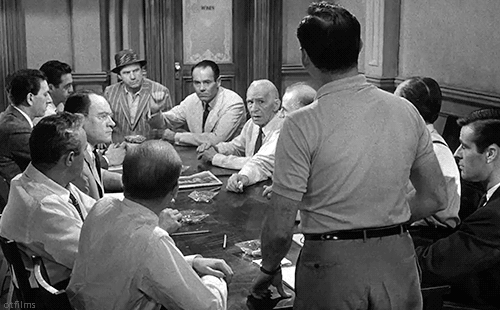
“For the last time, who here thinks he shouldn’t pass?”
Finally, after almost 15 minutes of deliberation, the committee chair came out and smiled. “Congratulations,” she said. That was all I wanted to hear.

After thanking everyone and gathering my things, I texted my wife, my brother, and the rest of the family (except my mom, she’s in a funk) to let them know all about it. Then, as I was walking through the halls of the school, I celebrated with anyone I knew.

All that is left to do is to go outside for a moment and scream.

Thanks for coming along on this adventure… It’s time to go Chasing Zika.
Making Noise to Drown Out the Signal
Posted on November 3, 2016
In case you haven’t noticed, there’s a big fight going on in North Dakota over access to Native American land. The Washington Post has a better explainer than any I could ever write. That’s not what this post is about. This post is about something interesting that happened yesterday and that is going to seriously limit how we use social media to track events (and diseases and conditions) through it in the future.
A rumor started circulating yesterday that the local police in North Dakota, where the standoff if happening, was using Facebook check-ins to track the people who were traveling to the reservation to support the protestors. In an attempt to disrupt those efforts, tons of people — including myself — checked in on Facebook, saying that we were at the reservation. A “check-in” is when you tell your friends and followers where you are in order to make them jealous, encourage them to join you, or tell other people there that you have arrived and that you are bringing your best game to the party.
They’re kind of useless, really.
Anyway, a few weeks ago, the ACLU in California revealed that police in Baltimore were using social media and some private software to identify people involved in the riots last year. They would go social media sites like Twitter or Facebook and look at posts from people at the riots and what they were posting about the riots. A lot of the posts were pictures and photographs.
So this case in North Dakota would not be the first time that law enforcement uses social media to keep track of what is going on, and who is participating in these events. On the one hand, it can be a very valuable tool because you get to identify “bad hombres” among the otherwise peaceful protesters. You could act to stop them from putting everyone at risk and keep any demonstration peaceful. On the other hand, you’re probably breaking some ethical rules… If not laws against surveillance of innocent people.
But what happens when everyone starts making noise to mess with your surveillance system? What if your signal gets drowned out?

There are data in there somewhere. I’m sure of it.
This was one of the concerns that we had when we first started to use residents in Maryland as sentinels of influenza activity. We worried that people would go online on purpose and report bogus presence or absence of symptoms. We also worried that non-influenza symptoms, like allergy symptoms, would be interpreted as actual signals by the system… Or would drown out the real signal.
Most epidemiological surveillance systems work this way. There is always some signal that is lost in the noise. You then try to adjust your system to account for the noise and end up losing something that was very close to the noise and not quite a full signal. This all makes you go back and forth on choosing what kinds of signals you want to detect versus the ones you’re willing to lose in order to ignore the noise.
In all of this, one of the things that not even the best surveillance system can account for is human ingenuity. Human ingenuity is a big reason why quarantines don’t work. It’s also a big reason why our best predictions of things like traffic and crime — and other strictly human endeavors — always end up being slightly off from what ends up happening. We’re kind of predictable and unpredictable in that way.
So what do you do if the signal gets drowned out on purpose? Well, the number one thing would be to have a backup system to rely upon if yours is rendered useless by some human interaction. That should be basic knowledge. The other thing you can do is to calibrate your system from time to time by injecting noise into it and telling it how to handle it. (It’s the reason why we have pandemic influenza response exercises. Talk about noise when everyone and their sister all of a sudden becomes a “worried well” casualty.) The last thing you could (and should) do is to present the findings of your surveillance program and include the caveat that there are missing/latent variables in the whole thing because something/someone went and made a lot of noise.
Good luck getting your bosses to be okay with that last one.
There have been a lot of advances in how we systematically collect, analyze, interpret and disseminate data. During the collection process, there will be times when a lot of noise drowns out your signal. For those days, the kind of days you wish you had stayed home, there are different methods to deal with what is happening. One thing you should always know how to do, however, is to recognize noise. Then you’ll truly be able to tell apart the noise from the signal yourself, technology be damned.
The Political Fights You’ll Get Yourself Into
Posted on October 31, 2016 1 Comment
During the 2000 election, I had just recently moved to Pennsylvania from Texas. It is safe to say that a good 80% to 90% of the people I worked with were socially conservative. In essence, they were rooting for George W. Bush to win the election. As we all know, the election went on unresolved for days as Florida votes had to be counted and re-counted. More than a few of my coworkers were tense about the situation.
In 2004, during Bush vs. Kerry, the tension was even more palpable. By then, the war in Iraq and Afghanistan was well underway. Many of the town’s kids were heading out to war. There weren’t that many professional outlets for those kids, and the service was a perfectly reasonable place for them to be. It wouldn’t be long until the town lost one, then two, then three and more soldiers in the war… All before the election. That led to heated discussions between coworkers who had sons and daughters in the service and those who didn’t but argued that the war was an unjust war.
In that election, the war was not the only thing on people’s minds. There were clashes between those who saw gay marriage as something so horrifying that it needed to be outlawed in the different states’ constitutions. People that I worked with — very religious people — were horrified at the idea that two adults could be legally bound to each other in marriage. And their lies and misinformation was infectious.
For both elections, I supported Bush.
Hold on. Hold on. Let me explain…
I went to a very Liberal college in far west Texas, as far from Austin as you can get. El Paso was very Liberal, and I was convinced that the things that affected me (discrimination, the continued harassment at the border, and lack of good employment) was all because of the policies of those in power at the local level. Heck, relatives of mine had benefited greatly from Ronald Reagan’s amnesty program in the 80s and George H. W. Bush’s immigration policies in the late 80s and early 90s. Furthermore, the first Bush had successfully taken us into and out of Iraq. In my mind, his advisors — whom the second Bush Administration inherited — were going to do a bang-up job against Hussein in Iraq and the Taliban in Afghanistan. They were also going to get comprehensive immigration reform done, something Clinton had not achieved.
I had also been aware of Bill Clinton signing into law the entitlement reform that took away benefits from our family because we were legal residents, not citizens, in the US. From one day to the next, kids in my school and in my extended family no longer qualified for help with food, housing, and medical care. Neither did I. And all that had happened during years in my life where the pre-frontal cortex didn’t fully understand everything that was going on around me.
As I went to school for my MPH degree at George Washington University, I got to truly meet people from all over the world. In El Paso, I had met a few people here and there, but the overwhelming majority of students there were Hispanic just like me. There was variety, but not from my perspective. Once I was at GW, I met people from the Middle East, including people from Iraq. I met people from Afghanistan. I learned what the war was doing to their families and to them. I felt the fear they felt.
That eroded my support of the Republicans a little bit. Not a whole lot, but enough to make me start to look at other points of view and analyze policies at all levels on the Left. And then the 2008 campaign came around. By then, the Tea Party people had started their sabre-rattling. Fox News, which I watched a lot, started talking about how my friends and family members were criminals who should be feared above all else. Rush Limbaugh, whom I listened to as I drove to and from DC to school, started making fun of my friends who were poor and those who were addicted to drugs.
At work, I started seeing the same religious people who opposed gay marriage make mockeries of their own marriages. (At one point, I wondered if everyone in the emergency department really did sleep with everyone else, as the rumors swirled.) People who told me that the war in Iraq was justified because of weapons of mass destruction were everywhere could not explain to me how the weapons were never found and how there was one military blunder after another.
Then I changed jobs and went to work in Baltimore. While the office had a good mix of conservative and liberal folks, the atmosphere was more liberal. There were wide celebrations when President Obama was elected, especially by coworkers of mine who were Black. I saw their joy at seeing someone like them finally achieve the zenith of political power in the country. Their joy became my joy, especially since the Tea Party revolt was in full swing. Trip after trip to Mexico ended in a full-on interrogation at the border because I was Brown and fit a lot of stereotypes. In a couple of occasions I was told as much.
The Republican Party had lost me. Fox News had lost me. Rush Limbaugh was a joke. John McCain had lost fair and square, and it was time to move on from a way of thinking that saw everyone who was not White, Christian and naturally born in the US as some sort of existential threat. I miss the old guard, though.
Last summer, when Donald J. Trump announced his candidacy in a room full of paid supporters, I was in Colombia. Time after time, people who found out that I was American wanted to know how it was possible for him to say such horrible things about immigrants in general and Mexicans in particular. (I realized then that an attack on one of us was an attack on all of us, and it was kind of comforting.) I had to explain to them that the United States Constitution grants all people within its jurisdiction the right to freely express themselves. (There are some limits, but I didn’t get into that.) Trump, as horrible and dangerous as what he says is, has every right to say these things.
One taxicab driver offered to fly to the US and help in an insurrection should Trump win the Presidency. I told him then that it wouldn’t be necessary. “He won’t even win the primaries,” I said. Man, was I ever wrong. The populist sentiment and anger at the Federal Government is deep and palpable. There is a sizable chunk of the population that is incensed at the fact that America is changing. People like Trump are preying on that anger, that fear… And they’re getting their way.
More and more minorities are climbing up the economic ladder, finding themselves living in what used to be “All-American” towns and suburbs. Countries whose economies withstood the 2008 recession jumped ahead closer to the US in economic terms. China keeps growing. Companies are able to sell intangible products (e.g. computer apps) and services (e.g. anything web-based) while being sheltered in far-off countries. And all of this makes people angry.
The (mostly) college-uneducated, White young men I know can only see conspiracies in everything that is happening around them. The only reason I got into the DrPH program is because I’m Brown. The Chinese are outbidding every one of them in all ways possible. Their own failings are not theirs; someone else is to blame. In Trump, they have their champion.
There’s also something about the Jews, but I’ve never understood that kind of hatred. And I don’t wish to discuss it today.
This has all brought me into conflict with some of my friends, some of them close friends. Just the other night, a young lady whom I’ve regarded as someone between a daughter and a sister posted some weird video from a known misogynist about how Hillary Clinton is not fit to be President. I asked her if she knew who the author of the video was. She shot back with something about how our political views are very different. That kind of stung.
It stung because, in my interpretation of what she was telling me and posting on social media, she agreed with Trump that I’m an invader, a serial rapist, and someone who should not be trusted. That was my initial interpretation, anyway. The more I thought about it, the more I understood where she was coming from. She lives in a tiny town in Pennsyltucky. Her social network includes boys who like guns, and religious people who think anything non-Christian is an abomination to God. In a sense, it wasn’t her speaking, per se, but her experiences and the experiences of those around her.
And that’s as much as I’m willing to defend her.
To say that this election cycle has been a little trying on my friendships — in real life and online — is a bit of an understatement. My heart has been broken, somewhat, by seeing people post anti-immigration memes. I’ve been angry that Trump’s misogyny is explained away as something that men “just do all the time.” (No, it’s not.) And then there are those “friends” who are happy to troll me by making it seem like they are “just asking questions” about some of the positions I support.
There are also those friends who are old enough to know better. Some of my friends don’t know the history of how Mussolini came to power but yet claim that the populism seen in some candidates is not a harbinger of fascism. (That is more a criticism of the US educational system more than anything else.) Some of my friends don’t remember Pinochet’s ruthlessness in Chile, a ruthlessness justified by him as being a “law and order” type of situation. And some of my friends think that the nice, warm weather we’re having at the end of October is just a natural variation of our climate. (HINT: It’s not.)
As much as I’ve wanted to avoid any kind of confrontation over politics, it’s been hard to do this election. With Trump being such a xenophobe and misogynist jerk, I’m having a hard time not taking it personally when someone says they’ll vote for him. Even worse, living in Pennsyltucky has allowed me to see people turning their fear into anger and hate. What will happen after the election if they don’t get their way? One way or another, this has created a rupture between and — worse — within groups.
Eight days to go.
Where Do You Even Begin?
Posted on October 25, 2016
As some of you know, I am attending Hopkins on a scholarship. One of the perks of the scholarship is that we, the scholars, get to meet some interesting people from in and around Baltimore. These people range from artists to activists, to politicians and authors. They’re all very interesting people, even if we sometimes get into some topics that are a little dry.
The most recent chat was with one of Baltimore’s former mayors. Rather than give you a play-by-play of our conversation, I want to instead focus on what we talked about, and what got my brain going as I sat there listening to them. The first feeling I had was one of being overwhelmed. It lasted for about fifteen seconds, then came the ideas flowing. So here I am, putting ideas to, uh, paper?
When it comes to “fixing” things in Baltimore, the first question I had was where do you even begin? The city is going through a pretty bad wave of violence, violence that is killing more people per capita than what has been experienced in about a generation. The causes for the violence are many, and there is no one single answer on how to address it. To make matters more difficult, each one of those “answers” requires a starting point that is very elusive.
If the problem is the illegal drug trade, it would seem like a good idea to reform the justice system so that the “war on drugs” turns into more of a Manhattan Project on how to get people off drugs. Yet some people are perfectly okay — i.e. functional — on drugs. So do we decriminalize drugs and just kind of be okay with people on drugs so long as they are productive and do not represent a burned on the rest of us? This is probably an ethical thing to do if the person(s) in question is an adult and knows full well the consequences of their habit.
So let’s say we decriminalize drugs and gangs don’t have a monopoly on them. What are all those (mostly) kids going to do for a living? Because good-paying jobs are very hard to come by in Baltimore. We then would have to shift our focus to jobs. How do you get people and businesses to invest in Baltimore? With almost half of the city gone from the exodus in the 90s, and still leaving, it’s a hard sell to promote the city as a place to live work and thrive.
Alright, so now we have to get people back into Baltimore. What can we do to make it more attractive? A good public transportation system? Shared bikes? Easy driving in and out? Good roads that get repaired quickly after a major snowstorm (or not)? Affordable housing? Nice, safe parks? With a little tweaking here and there, Baltimore has all these things. It’s the tweaking that gets tricky.
When you don’t have as many people living in Baltimore, and there are way too many empty residences and buildings, the tax base to finance the nice things that attract people to the city dries up. It’s kind of a vicious circle in that regard. And it’s very hard to consider where to begin to fix things.
To make it all worse, there are many political and financial interests in Baltimore that make leaders and major stakeholders disagree with one another on where to begin. Developers want to develop, but they don’t want to be burdened with requirements for affordable housing. Business owners want to open shops, but they’re nervous (to put it mildly) of hiring from a pool of young men who have been in jail, even if their convictions are minor things like marijuana possession or underage drinking… Even if they’ve spent 10 or 20 years fulfilling their debts to society. And politicians want to fill their campaign coffers with cash, even if it means forgoing all of their campaign promises.
Frankly, it makes my head hurt to think of where to begin to fix a city like Baltimore. If I had all the time and money and authority to do so, I’d still have a headache. History, socioeconomics, and institutionalized racism would all have to be contended with, but none are readily tangible for anyone (or any group) to contend with them. You can’t push a button and erase the mistrust of the citizens with the institutions meant to serve them. Likewise, you can’t teach a man how to fish when you are in the middle of a desert.
Still, you have to start somewhere… Anywhere.
We Need to Pay Attention to What Is Going on in Puerto Rico
Posted on October 24, 2016 7 Comments
I’ve been doing a lot of reading about Puerto Rico since I agreed to go down there to help in the Zika outbreak. According to most media reports, the situation in Puerto Rico is quite dire from a financial and demographic standpoint. Crime is high, yes, but it’s not any higher than Baltimore, where murder is an almost daily thing. I’ve said before that Puerto Rico might as well be our 51st State, but we sure treat it like a foreign country.
From the Wall Street Journal:
“A decadelong recession has left one in nine residents out of work and roughly half dependent on the cash-strapped government for health care. Net migration to the U.S., where Puerto Ricans can move with no restrictions, was 250,000 so far this decade. The island’s labor force shrank 20% in the past 10 years, compared with 5% growth in the U.S.
Puerto Rico’s population slide is the worst since the Census Bureau began its first tally in 1920. Mario Marazzi, who runs the Puerto Rico Institute of Statistics, says the continuing decline might be rivaled only by the extinction of the indigenous Taíno people after the arrival of Spanish settlers in the 16th century.
…
As more people leave, the government faces greater pressure to cut jobs. The number of students in public schools is 40% lower than it was a decade ago, while the number of teachers has grown. Puerto Rico operates as many correctional facilities as it did in 2004, despite a 26% drop in inmates.
Puerto Rico ended up in its current situation because of a string of haphazard policies by federal officials going back decades. On top of that, local leaders have struggled to cut spending and boost tax collections. Instead, they borrowed to make up for recurring revenue shortfalls.
Federal tax credits long cultivated a robust manufacturing sector, steering the island away from agriculture after World War II and into a major hub for pharmaceutical and medical-device makers. Then Congress ended those incentives. When the last expired in 2006, many high-paying drug makers packed up for Singapore and Ireland.”
So, like with almost every big financial crisis, the current crisis in Puerto Rico could have been avoided, or at the very least prevented. Of course, the 2008 “Great Recession” didn’t help things. If you think you had it bad in the “Rust Belt,” then magnify it by a lot on the island.
In terms of healthcare, things are also bad. From the New York Times:
“The first visible sign that the health care system in Puerto Rico was seriously in trouble was when a steady stream of doctors — more than 3,000 in five years — began to leave the island for more lucrative, less stressful jobs on the mainland.
Now, as Puerto Rico faces another hefty cut to a popular Medicare program and grapples with an alarming shortage of Medicaid funds, its health care system is headed for an all-out crisis, which could further undermine the island’s gutted economy.
On an island where more than 60 percent of residents receive Medicare or Medicaid — an indicator of Puerto Rico’s poverty and rapidly aging population — the dwindling funds have set off outpourings of concern among patients and doctors, protest rallies and intense lobbying in Washington.
And while the crisis is playing out most vividly today, its cause dates back decades and stems, in large part, from a vast disparity in federal funding for health care on the island compared with the 50 states. This disparity is partly responsible for $25 billion of Puerto Rico’s $73 billion debt, as its government was forced to borrow over time to keep the Medicaid program afloat, according to economists.”
People in Puerto Rico pay the exam same rate in taxes (though not Federal Income Tax) than people on the mainland, but the Medicare/Medicaid reimbursement level is less than that of any of the States or the District of Columbia. That whole tax thing may in itself be something that needs to be looked at, but you go tell people who are seeing their economy in the dumps that they have to pay more taxes. Go ahead. Get back to me on how well it went.
The strain on the healthcare system is one of the reasons why the request has gone out for help with Zika. Puerto Rico is in the “goldilocks” zone for Zika, and this has translated to a ton of cases in a relatively short time. (There have also been outbreaks of Dengue and Chikungunya, so you know the mosquitoes are there and they’re biting a lot of people. Couple that with a failing health infrastructure, and it’s all a recipe for disaster.
There are still many uncertainties about Zika, and there are uncertainties about how the government in Puerto Rico will deal with the budget shortfall, the exodus of residents (and physicians) to the mainland, and the issues of unemployment and social decline that come with a declining economy. It’s going to take a lot of time and a lot of work to get to a place that is, well, better. I just hope that we on the mainland don’t forget about our 51st State.
Thimerosal Is a Salt, and It’s Pretty Safe
Posted on October 18, 2016 3 Comments
I completely understand why chemicals are scary. From the time that we’re kids, we’re told that there are poisons out there, and that those poisons are chemicals. They usually have really complex-sounding names, names we don’t use everyday. So I also understand when people are skeptical of chemicals included or added in food. Remember the whole debacle over Subway having a “yoga mat chemical” in its bread? It turns out that the chemical in question was in more foods than just the bread at Subway, but, because of the actions of a few “food warriors,” we only freak out about a large company using it.
As it turns out, what makes chemicals safe or dangerous is in large part the concentration of the chemical you ingest. Water, a chemical we need to live, can be dangerous in excess. Drink too much water and you dilute the other stuff in your body that you need for energy, nerve transmission, and waste removal. Botulinum toxin, a chemical found in dangerous bacteria that cause botulism, can be given in very small amounts to treat migraines, muscle pain, and for cosmetic reasons. Eat too much sugar at one time and you drive your metabolism into acidosis (where your blood falls too far below the pH of 7.35). Eat too much over your lifetime, and you are likely to become obese and have all the health complications that come with it.
So you get the gist of how this whole thing with chemicals goes.
Now, let’s talk about salts. In chemistry, a salt is a compound that results from an acid-base reaction. Of course, most people think of table salt (sodium chloride) when they hear the world “salt.”
Just the other day, I tweeted out an article about the influenza vaccine. An antivaxxer from Australia who fancies herself a “whistleblower” about vaccine safety, almost immediately replied to me. She told me to be weary of a “hot shot” from a multi-dose vial of influenza vaccine. By that, she meant that thimerosal can concentrate within the vial and I would get a big dose of it. When I pointed out to her that thimerosal is not pure mercury, just like table salt (sodium chloride) is not pure chlorine, she asked a very reasonable question: “Is English your first language?”
Why is it that these antivaxxers always go there with me?
Even Green Party Presidential Candidate, and physician, Dr. Jill Stein uses the “scary mercury” gambit when talking about thimerosal and vaccines:
This was not a “public health win,” by the way.
The reason thimerosal is needed in vaccines is because vaccines are pretty good as a medium on which bacteria can grow. If a vial is not refrigerated well and opened, bacteria could colonize it and produce their own toxins. Then you give the contaminated vaccine to an individual and end up with some pretty bad results. (Last year, in Chiapas, Mexico, several children had to be hospitalized because of bacterial contamination of the vaccines they received. They got them in a rural part of Mexico where refrigeration is not the best.)
To prevent this contamination, thimerosal is added in very, very low concentrations to the vaccine solution. It’s a concentration high enough to kill any bacteria (or at least keep them from growing) that may have fallen into the solution. But the concentration is also low enough to not cause any health problems in a human being. (This ability to kill things in vials is also why thimerosal is not used in the MMR vaccine, a live virus vaccine, contrary to what “MMR CAUSES AUTISM!!!!” people want you to believe.)
But thimerosal has mercury, and mercury is pretty bad, right?
Well, it’s all in the chemistry. The mercury compound that is thimerosal is not the same as the mercury compound that is found in, say, tuna. Just like ethanol and methanol are both alcohols, their effects on the body can be quite different.
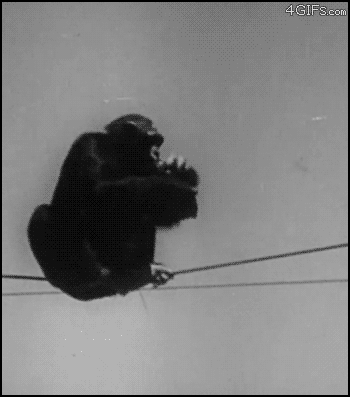
Effects of ethanol… Drunkedness.
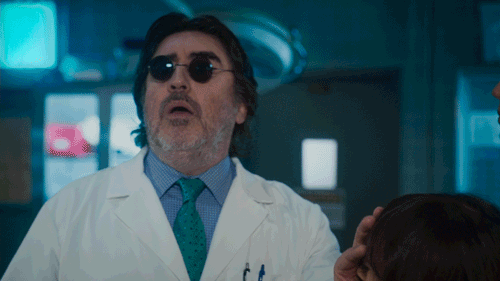
Effects of methanol… Blindness.
So why did we get rid of thimerosal in vaccines? Public relations. That’s all. False accusations of thimerosal causing autism began to manifest themselves in lower vaccination rates. Vaccine manufacturers and vaccine policymakers began to research the possibility of removing thimerosal from vaccines. In the United States, where refrigeration of vaccines is not a big problem, they decided it would be okay to remove thimerosal. It was a public relations win for the antivaxxers since they were now able to say that thimerosal must be dangerous if it was removed.
The problem with this is that other countries — with less-than-perfect cold chain systems for their vaccines — looked at this and asked why they were still using vaccines with thimerosal. They became more afraid of the false threat of autism than the true threat of infectious disease. And we ended up with events like the one in Chiapas happening in other countries where refrigeration is not widely avaibale.
Another problem is that, to the uninitiated, antivaxxers sound reasonable when they point at thimerosal as a boogeyman. After all, if the US Government took it out of vaccines, it must because it’s bad. Then the same uninitiated read what thimerosal is, and they see the word “mercury,” and they think that the mercury in thimerosal is like the mercury that the same US Government and private organizations warn pregnant women about (from eating tuna and other fish).
Then, when I try to begin an explanation of why thimerosal is not bad in vaccines, I get the “YOU’RE A FOREIGNER, YOU DON’T KNOW ANYTHING” card thrown at me. Because, again, this is how antivaxxers play the game. They will not talk to you about how the dose makes the poison, how saying thimerosal is mercury is like saying table salt is chlorine, and they will make baseless accusations based on preconceived notions.
If only there was a thimerosal-containing vaccine for anti-vaccine lies and misinformation.
Antivaxxers Trumping CDC
Posted on October 16, 2016 3 Comments
I’ve always been impressed by the cognitive dissonance exhibited by many in the anti-vaccine community. But it wasn’t until this election cycle thatI comes to understand exactly what they’re doing and why they’re doing it. When I see Donald Trump, a sweat stain that just wont come off your favorite country, tell a lie and then almost immediately say that the lie he told was part of a conspiracy to discredit him. Antivaxxers do this all the time. They’ll say that vaccines cause autism, and then, when confronted with the evidence that vaccines do no such thing, antivaxxers will quickly yell at you and tell you that you’re part of a conspiracy to hide the truth. If the antivaxxer happens to be a parent, pointing out to them that they’re lying or misrepresenting the evidence quickly comes with an accusation that you’re making fun of their child or their situation, or that you’re not a parent and thus have nothing to say on the matter.
Now, this is the part where I tell you that I’m not making fun of anyone… At least not intentionally. I’m sure that parenting is difficult all on its own with a neurotypical and physically able child. So I’m sure that a child with special needs of any kind must be at least a little more difficult. Sadly, for some parents, it is intolerable to the point that they are convinced when people like Andrew Wakefield sell them the idea that killing their child is preferable to a life of challenges. Again, I am not making fun of you if you are an anti-vaccine parent. And, most importantly in this entire discussion, I am not making fun of your child.
A couple of days ago, antivaxxers decided to have a rally in front of CDC headquarters in Atlanta, Georgia. True to form, they brough on the conspiracy theories that the government is in cahoots with the pharmaceutical industry to, among other things, kill and maime children through vaccines. They made wild claims as well, like their claim that most children will be autistic in the near future from all the vaccines. (The scientific evidence points more and more to a consistent 1% to 3% rate of autism in the general population at all times.) They claimed that there is no such thing as Suddent Infant Death Syndrome (SIDS) because it’s all about the vaccines. And, when random people walked by, they assailed those people with their stories of horror allegedly brought on by vaccines.
This is the video of one such interaction:
The man in the video is clearly just trying to cross the street but is assailed by this woman, a woman who calls her son “mentally retarded after his vaccines.” The man asks her to “go away” a couple of times, but she just keeps it up. She then goes as far as to take a picture of him — because that’s a normal thing to do in these situations, apparently — and he flips her off.
Well, that flipping off just drove the antivaxxers insane. They started complaining on social media and on their blogs that this guy needed to be found and made pay for flipping off this woman. They launched into conspiracy theories about him being a paid actor or someting

You’re being manipulated alright…
This is all par for the course for antivaxxers. They try to intimidate public health workers (or people whom they think are public health workers) and then claim to be victims if those they are intimidating respond in any way. They lie about conflicts of interest and other improprieties but then claim to be the victims if someone points out to them that they’re selling supplements and scams. Or they cry that they’re being censored when they themselves don’t allow any kind of comments contrary to their beliefs on their blogs.
Antivaxxers are, in my humble opinion, and it’s a good opinion… A lot of smart people are saying I have a good opinion. And, let me tell you, folks, my opinion is so good that your head will spin. My opinion… By the way, if you go ask for someone else’s opinion, their opinion will not be as good as mine, okay? I’m just saying. Because no one can give you an opinion like mine. And, when you’re not famous, they’ll let you grab them by their opinion any time. Anyway, my opinion is that antivaxxers — who are horrible people — antivaxxers are just like Trump. If they don’t lie, they bend the truth. If they don’t bend the truth, they make something up. And if they don’t make something up, they claim it’s all a conspiracy.
Portugal, That Bastion of Public Health
Posted on October 10, 2016
We humans are really weird when it comes to assessing risk. Although flying is the safest way to travel (if you divide the number of people-hours in flight by the number of deaths from flying), we have this weird and irrational fear of flying. Although there are more deaths from irresponsible use of firearms than from terrorist acts, we applaud an anthropomorphic sexually transmitted infection who wants “extreme vetting” of Muslims entering the United States. However, when 26 people overdose on drugs in 24 hours in Huntington, West Virginia, no one really bats an eye.
It’s all part of the plan, I guess.
It’s all part of the plan because we, as a society, have come to see people addicted to drugs as less-than-human beings who deserve everything that’s coming to them. Just look at what Mike Pence and his Republican friends did in Indiana. They were perfectly happy to allow an HIV epidemic to go unabated as long as they could because giving people clean syringes to inject drugs is too unpalatable. It enables them to use drugs without facing the consequences, or something like that.
But what if we could stop it?
We can’t, right? People get hooked on drugs and very few get off of them. The image of the drug user/abuser is that of a person who ends up dead in the gutter somewhere. One of the things that I kept being told from the time I was a child was that I would always be tied to drugs like heroin or even marihuana if I ever dared touch them. That worked for me, by the way. My fear of losing control to something like that kept me from trying any kind of psychogenic drug. To this day, I take a local anesthetic instead of anything stronger when getting my teeth worked on.

My idea of me on drugs.
But that’s not the truth, right? There are plenty of people who, given the right opportunities, can kick the habit of psychotropic drugs (or any other such habits). Take as an example all those soldiers serving in Vietnam who were addicted to heroin. Once they came back from the war, about 95% of them kicked the habit. Why? According to this NPR article, here’s what happened:
“But one big theory about why the rates of heroin relapse were so low on return to the U.S. has to do with the fact that the soldiers, after being treated for their physical addiction in Vietnam, returned to a place radically different from the environment where their addiction took hold of them.
“I think that most people accept that the change in the environment, and the fact that the addiction occurred in this exotic environment, you know, makes it plausible that the addiction rate would be that much lower,” Nixon appointee Jerome Jaffe says.
We think of ourselves as controlling our behavior, willing our actions into being, but it’s not that simple.
It’s as if over time, we leave parts of ourselves all around us, which in turn, come to shape who we are.”
Similar stories of rehabilitation can be found everywhere. People who were addicted to this or that drug got off of it when their environment changed. They moved away from friends who “partied” together with them. They got jobs that were meaningful and they weighed the option of continuing to use the drug versus having a worthwhile life. Or they gained a new support system that brought them the relief from the things that drove them into the use of drugs.
In essence, a “drug addict” is not someone you should just throw away… Throw away to violence between drug gangs, to HIV from dirty needles, to unemployment and social stigma from criminal histories. There are science and evidence-based ways to interrupt drug addiction. It just takes political and social will.
What happened in Huntington, West Virginia, is going to keep on happening until we do what Portugal did. What did Portugal do? From the Washington Post:
“Portugal decriminalized the use of all drugs in 2001. Weed, cocaine, heroin, you name it — Portugal decided to treat possession and use of small quantities of these drugs as a public health issue, not a criminal one. The drugs were still illegal, of course. But now getting caught with them meant a small fine and maybe a referral to a treatment program — not jail time and a criminal record.
…
The prevalence of past-year and past-month drug use among young adults has fallen since 2001, according to statistics compiled by the Transform Drug Policy Foundation, which advocates on behalf of ending the war on drugs. Overall adult use is down slightly too. And new HIV cases among drug users are way down.
Now, numbers just released from the European Monitoring Centre for Drugs and Drug Addiction paint an even more vivid picture of life under decriminalization: drug overdose deaths in Portugal are the second-lowest in the European Union.
…
Among Portuguese adults, there are 3 drug overdose deaths for every 1,000,000 citizens. Comparable numbers in other countries range from 10.2 per million in the Netherlands to 44.6 per million in the U.K., all the way up to 126.8 per million in Estonia. The E.U. average is 17.3 per million.
Perhaps more significantly, the report notes that the use of “legal highs” — like so-called “synthetic” marijuana, “bath salts” and the like — is lower in Portugal than in any of the other countries for which reliable data exists. This makes a lot of intuitive sense: why bother with fake weed or dangerous designer drugs when you can get the real stuff? This is arguably a positive development for public health in the sense that many of the designer drugs that people develop to skirt existing drug laws have terrible and often deadly side effects.
…
Still, it’s very clear that decriminalization hasn’t had the severe consequences that its opponents predicted. As the Transform Drug Policy Institute says in its analysis of Portugal’s drug laws, “The reality is that Portugal’s drug situation has improved significantly in several key areas. Most notably, HIV infections and drug-related deaths have decreased, while the dramatic rise in use feared by some has failed to materialise.””
Some people are horrified at the idea of a safe, secure place where heroin users can go and safely use without the danger of dying from an overdose or a needle-borne infection. But these places exist right over the border in Canada, and they’re having great success at reducing deaths from overdoses and helping people kick the habit. Because it’s not just about giving them help if they overdose or clean needles to avoid infections. It’s also about offering rehabilitation services, mental health services, and opportunities for employment and self-fulfillment… You know? The things that could help someone kick the habit?
More on what Portugal has achieved:
- 14 Years After Decriminalizing All Drugs, Here’s What Portugal Looks Like
- Portugal’s Example: What Happened After It Decriminalized All Drugs, From Weed to Heroin
- Portugal, 12 Years after Decriminalizing Drugs
I do have to write that I’ve often said that the United States is not like other countries, and other countries are not like the United States. This principle of mine is why I am very careful about comparing the US to other countries, and vice versa. We are 50 states and territories that are very different between them. Even within the states, there are stark differences between their counties. And even within their counties… You get the idea. But it wouldn’t hurt for someone here in the United States to try and do something better — more based on reality — than the nightmare the war on drugs has been.
Indiana, That Bastion of Public Health
Posted on October 5, 2016 1 Comment
It’s not a secret that Donald Trump offered the Vice President nomination slot to John Kasich, telling Kasich that he would be the VP but be in charge of domestic policy and other things. In essence, Trump would be a figurehead, probably raking in the cash and other benefits of being in power while letting the VP do all the dirty work. When Kasich declined, Trump picked Indiana Governor Mike Pence.
Mike. Pence.
Governor Mike Pence took office as governor in January 2013. Almost immediately, he worked with the Legislature there to de-fund Planned Parenthood. (It was something that the previous governor had tried to do as well, in all fairness. It must be a tradition, or something.) Their efforts failed, but the damage was done.
Slowly and steadily, funding for Planned Parenthood was diminished. It wasn’t eliminated, because they really couldn’t take away all the money. But it was diminished. The time then came when the one clinic serving Scott County, Indiana, had to close. It never provided abortion services, just to be clear.
In January of 2015, epidemiologists at the Indiana State Department of Health (ISDH) noticed that 11 cases of HIV had been newly diagnosed in the southeast part of the state. (Scott County is just north of Louisville, Kentucky, in a rural part of Indiana.) Previously, only 5 cases a year had been diagnosed there, on average. The fact that all the cases shared a similar place of residence and had similar exposure histories (IV drug use) raised alerts. By April, 135 cases had been identified.
You can read all about it in the Morbidity and Mortality Weekly Report of the outbreak.
For many years before the outbreak, Indiana had outlawed needle exchange programs. So needles were hard to come by. Then the opiate epidemic arrived, and people were addicted to pain medication. When pain medication became hard to get, they turned to heroin. The heroin needed to be injected, so they got needles from somewhere. Then they started sharing those needles… And the outbreak began.
In March, when he was told what was going on, Gov. Pence called up advisors and wondered what to do (my emphasis in bold):
“Much as Tim Kaine, the Democratic vice-presidential candidate, had to wrestle with his deeply felt opposition to capital punishment in a death penalty state, allowing 11 executions when he was Virginia’s governor, the H.I.V. outbreak forced Mr. Pence to balance strong beliefs against ground-level reality: an epidemic that was growing more dire by the day.
In recent interviews, local, state and federal health officials said Mr. Pence initially held firm. So as they struggled to contain the spread of H.I.V., the officials embarked on a behind-the-scenes effort over several weeks to persuade him to change his mind, using political pressure, research and pleas for help from this remote, poor community.
On March 23, more than two months after the outbreak was detected, Mr. Pence said he was going to go home and pray on it. He spoke to the sheriff the next night.
Two days later, he issued an executive order allowing syringes to be distributed in Scott County.”
Thank God — literally, since Gov. Pence had to pray about this — that he opted to do the right thing.
That NY Times article goes on to talk about how people up and down the public health and policy structure within Indiana were conflicted about needle exchanges. Some of them, including Gov. Pence, believed that giving IV drug users needles was the ethical/moral/practical equivalent of enabling their drug use. (Federal legislation making it illegal to use needles and syringes for other than “legal” administration of drugs was supported by Gov. Pence when was in the House of Representatives.)
Because, you know, making something illegal totally eliminates it from our society.
Thankfully, enough reasonable people reached Gov. Pence, and he issued the executive order for the needle exchange in Scott County (and nearby places seeing that outbreak happening to their people). Sometime later, the Indiana Legislature passed a bill to reverse the prohibition on needle exchange programs, instead regulating them closely. However, that regulation comes with some interesting caveats:
- First, the local health official declares an emergency because an HIV or Hepatitis C outbreak is happening.
- Then, the local government accepts the declaration and asks for public health officials to proceed.
- Finally, the state health secretary declares the emergency and the programs are propped up. This declaration is re-visited yearly.
In other words, the horse has to be out of the barn before a commission of people ask that a door be built.
You will probably think that this is a political attack on Gov. Pence and his possible handling of public health should he and the misogynist orange phlegm specimen lost in the back of a lab workbench for 70 years win the election coming in November. You might even call for me to make a similar evaluation of Tim Kaine’s public health record in Virginia. And this would be fine… If there is some thing out there telling me that Tim Kaine took some weird decision with regards to public health. He really hasn’t (kind of). He’s vanilla like that with regards to it.
But Mike Pence? The guy even had an op-ed telling us that smoking doesn’t cause cancer and certainly doesn’t kill. Maybe we should pray he doesn’t have anything to decide as VP when it comes to public health? I know I will.
Postscript:
- Indiana is 39/50 states in life expectancy. Virginia is 24. (Kaiser Family Foundation)
- Indiana has the 8th highest infant mortality rate. Virginia has the 28th. (Also Kaiser Family Foundation, surely a “Libtard” front.)
- Indiana has the 9th highest rate of cancer deaths per capita. Virginia has the 22nd. (From that Obama-controlled CDC.)
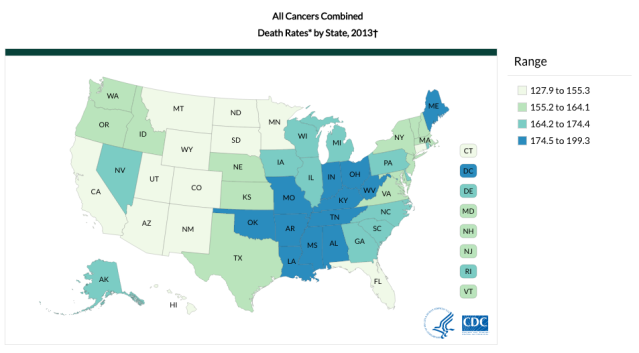
Blue is not good in this case.
You get the point.

